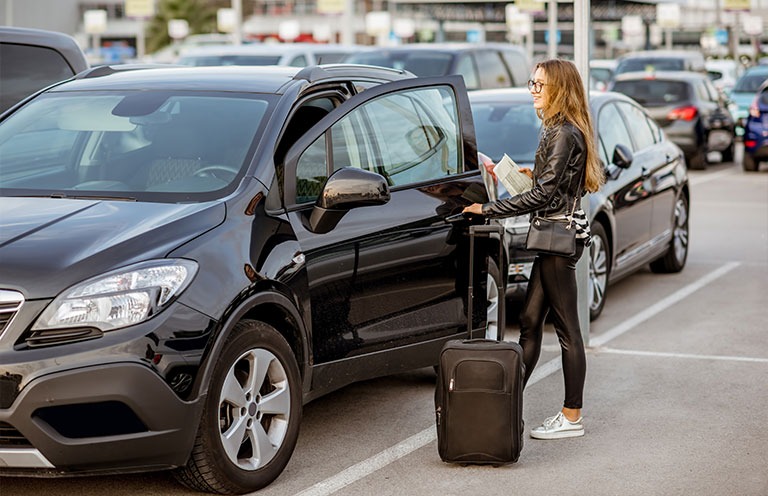7 Surprising Things You Didn’t Know Need Niche Insurance Coverage—but Do
From heirloom jewelry and high-end electronics to your side hustle and next vacation, these often-overlooked valuables could cost you big without the right coverage


When thinking about insurance, most of us stop at the basics: auto, home, life, and health coverage. But what about all those other valuable items and unique situations in your life? Some may carry risks you may not have considered, and leaving them uninsured could end up costing far more than an insurance premium.
That’s where niche insurance coverage comes in. From collectibles and electronics to pets and travel, these policies help fill the gaps in standard insurance protection.
Here are seven niche things you probably never thought to insure—but might want to.

1. Engagement ring and other jewelry
Engagement rings, wedding bands, and heirloom jewelry aren’t just sentimental; they’re often highly valuable. Many people assume their homeowner’s or renter’s insurance will fully cover these items if they’re lost or damaged; however, because jewelry is easy to lose or steal, most standard policies include a relatively low coverage limit—often around $1,500—which may not be enough to protect more expensive pieces.
That means if your $5,000 ring goes missing, you could be responsible for covering most of the loss out of pocket.
To ensure you’re fully protected against theft, loss, or accidental damage, you have a couple of options:
-
- Add a jewelry rider (or floater) to your homeowner’s policy.
This add-on allows you to increase coverage for specific high-value items. -
- Purchase a stand-alone jewelry insurance policy.
This coverage provides comprehensive protection tailored specifically for jewelry.
Since jewelry can easily slip off, get misplaced, or be damaged while traveling, exercising, or doing everyday chores, a little extra protection can offer a lot of peace of mind.

2. Rental cars
Many people assume their personal auto insurance automatically covers rental cars—but that’s not always the case. Even when it does, coverage can vary depending on your policy. If you’re not covered, an accident in a rental car could leave you responsible for damages.
And, even if your policy does extend to rentals, relying solely on it might still cost you, including having to pay your deductible and a possible rate increase after filing a claim.
Rental car insurance offers a layer of protection on top of your existing auto policy. It can help cover damage to the rental vehicle, medical expenses, and liability for injuries or property damage involving others.
Depending on your needs, you may want to consider the following options:
-
- Loss Damage Waiver (LDW)
Covers damage or theft of the rental car without involving your personal policy -
- Liability insurance
Pays for damage or injury to others if you're at fault -
- Personal accident insurance
Covers medical costs for you and your passengers -
- Personal effects coverage
Reimburses you for stolen belongings from the rental vehicle

3. Electronics
Laptops, smartphones, tablets, and gaming systems aren’t just expensive; they’re essential for work, school, and everyday life. While standard homeowner’s or renter’s insurance may cover electronics damaged in a fire or stolen during a break-in, it often doesn’t protect against everyday mishaps such as drops, spills, or power surges.
Even when coverage does apply, it’s typically capped around $1,500. And unless you have replacement cost coverage, you’ll be reimbursed only for the item’s depreciated value.
That’s where electronics insurance can help. These specialized policies go beyond the manufacturer’s warranty, and often include protection against:
- accidents,
- theft,
- liquid damage,
- cracked screens, and
- natural disasters.
With this added coverage, you can rest easier knowing that your devices are protected, no matter what life throws at them.

4. Collectibles and hobby equipment
From comic books and sports memorabilia to musical instruments and high-end cameras, hobby gear often represents years of passion—and potentially thousands of dollars in value.
Unfortunately, these prized possessions are often not fully covered under the standard personal property limits of a typical homeowner’s or renter’s insurance policy—making them smart candidates for niche insurance coverage.
While insurance can’t replace the sentimental or rare nature of an item, it can help ensure your valuables are covered at their appraised value...
If you own specialty or collectible items, consider adding a collectibles rider to your homeowner’s insurance or purchasing a stand-alone collectibles policy. While insurance can’t replace the sentimental or rare nature of an item, it can help ensure your valuables are covered at their appraised value—not just their replacement cost—protecting your investment from theft, loss, or damage.
Coverage is available for a wide range of collections, including fine art, coins, musical instruments, vintage toys, and more. Some insurers may require that your collection meet a minimum value (for example, around $15,000) before issuing a policy.

5. Travel
It can be easy to overlook travel insurance when you’re booking a trip, especially if you’re trying to save money. But if your flight gets canceled, luggage is lost, or you end up needing medical care abroad, you could be responsible for a very expensive bill.
Travel insurance can reimburse you for costs associated with:
- trip interruptions or cancellations,
- emergency medical expenses, and
- lost items.
Considering the cost of international healthcare or last-minute flight changes, this coverage can quickly pay for itself if unexpected issues arise before or during your trip.

6. Home-based businesses
With more people working from home or running side hustles than ever before, it’s important to know that a standard homeowner’s or renter’s insurance policy doesn’t always cover business equipment, inventory, or liability. And even when it does, the coverage limits are often relatively low. In fact, most policies specifically exclude business-related claims.
For example, if you store products in your garage or use costly photography gear for client work, you could be financially responsible if any of it is lost, stolen, or damaged.
To better protect your home-based business, consider these options for added property and liability coverage:
-
- Add an endorsement to your existing homeowner’s policy.
This increases coverage for business-related property, typically up to a modest limit. -
- Purchase an in-home business insurance policy.
It offers broader protection for equipment, inventory, and limited liability for customer visits. -
- Choose a businessowners policy (BOP).
A BOP combines property, liability, and business interruption coverage into a comprehensive package.
If you use your personal car primarily for business, you may also want to consider commercial auto insurance, which provides coverage not included in a standard personal auto policy.

7. Pets
Vet bills are no joke. A single emergency surgery can cost thousands of dollars, and ongoing treatments for chronic conditions can add up fast.
Pet insurance helps offset those expenses, giving you some financial breathing room and allowing you to prioritize your pet’s care without stressing over the cost.
Plans vary, but most cover emergencies, accidents, and even prescriptions—similar to health insurance for humans. For pet owners, this niche insurance coverage can be a game changer, offering both peace of mind and real savings.
The bottom line
Insurance is about safeguarding the things that matter most in your everyday life, including often-overlooked items that deserve special coverage.
Take a moment to evaluate your risks and consider which items in your life might need extra protection. Investing in the right niche insurance coverage can make all the difference when the unexpected happens.
